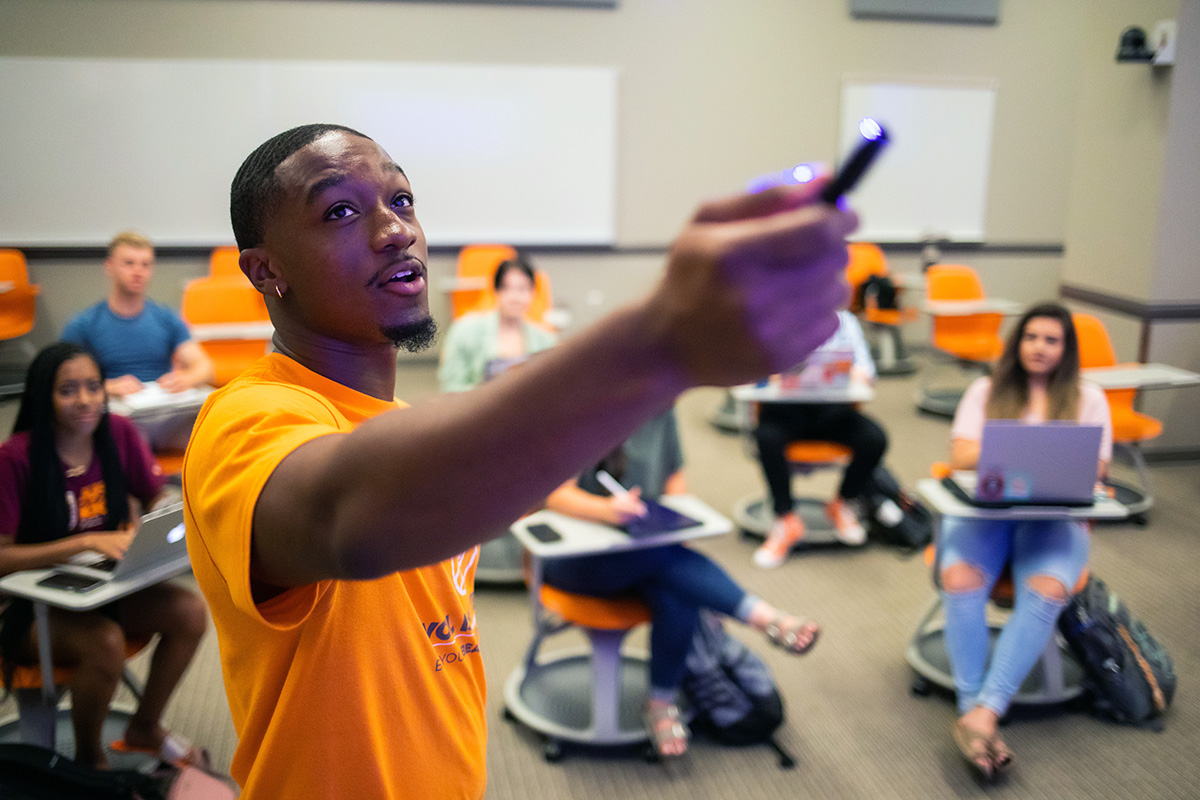
Students who commit to studying nuclear engineering at UT don’t just gain entry to one of the top programs in the country, they also gain access to all the help that comes along the way. The department recognizes five areas of high impact on student success: undergraduate research, internships and co-ops, service-based learning (community service), study abroad, and senior design.
Mentoring and tutoring programs are two of the ways that UT strives to help students achieve success throughout each stage of their educational journey. The department offers tutoring each semester for three core classes of the sophomore and junior nuclear curriculum.
There is typically a primary tutor that will host standard hours each week and a secondary tutor on standby if a student cannot make those standard hours. In addition to these designated tutors, there is usually a graduate teaching assistant for each class.
Tutor selection is first prompted by Professional Advisor Amanda Lovelace based on who successfully completed the class and has already expressed interest in graduate school. Faculty also offer feedback for selection based on interactions inside and outside the classroom.
“The majority of students have found the departmental tutoring to be beneficial not only for additional academic support but also for a sense of camaraderie,” said Lovelace. “Departmental tutoring is a small way to provide academic support, to promote a sense of belonging among the nuclear students, and to provide tutors an opportunity to gain leadership and teaching experiences.”
Additionally, the department has recently begun a mentorship program, coordinated by Associate Professor and Southern Company Faculty Fellow and Assistant Department Head for Undergraduate Studies and Service Jamie Coble. Through this program, first- and second-year students are paired with upper class students to provide guidance and to integrate into the department community.
Junior and senior students can choose to be paired with a mentor who is a graduate student or nuclear professional depending on the student’s postgraduation goals. Mentors from the nuclear industry have volunteered from many of the organizations represented on the department board of advisors.
“The mentoring program provides support to our undergraduate students from the first day they come to campus through their ultimate graduation,” said Coble. “We want to support all our students throughout their undergraduate program to help them be successful in their studies and in their ideal career path. This is just one way we want to ensure all our undergraduate students know that they matter and belong in nuclear engineering and at UTNE.”
Anyone interested in volunteering to mentor an upperclass undergraduate student can contact Associate Professor Jamie Coble for more information.